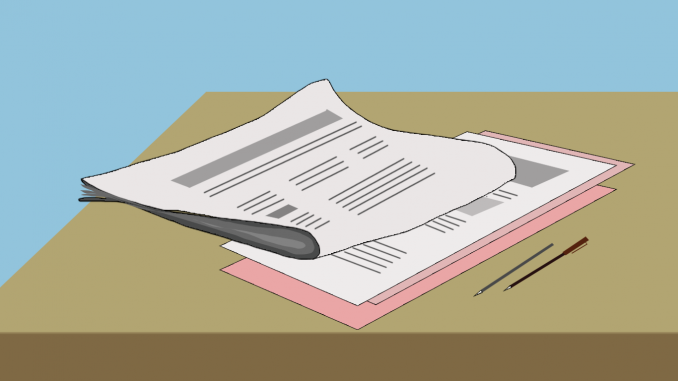
“I wrote my way out. Wrote everything down far as I could see.”
This is one of my favorite lines from the musical “Hamilton” in which Alexander Hamilton sings the story about how he escaped his impoverished circumstances by becoming a talented writer and successful lawyer.
I relate strongly to Hamilton’s story. My father is a factory worker and my mother is a cashier. My altruistic relatives paid for my private school and college education because they saw potential in me from a young age.
Because my parents had no money or connections, I knew from middle school I would need to have a skill that sets me apart from the rest in order to end the cycle of poverty. And for as long as I can remember, that skill has been writing.
I was never an avid reader, but I was a movie and TV show junkie. My enthusiasm for the art of film translated into my love of storytelling, and I dreamt of being a famous author one day. I crafted my own chronicles using 8 inch by 11 inch printer paper, markers and a stapler before I had any knowledge of how to use Microsoft Word.
While the other kids in my class turned their noses at the word “cursive,” I used it for years after it was not required by my school anymore. I took pride in my superlative penmanship grades and practiced perfecting my handwriting in my free time.
In high school, my closest relationships were with my English teachers. I was always enthusiastic about writing essays, and I’d go above and beyond my teacher’s minimum page requirement, often exceeding the word limit. Because I am a loquacious speaker, I could effortlessly articulate my thoughts into words.
Once I started, I couldn’t stop.
Eventually, I wanted my writing to have more meaning than just a letter grade, so I joined my local newspaper, writing for the teen opinion section. Not only was this an opportunity for me to publish my writing, but it was a chance to express my liberal-leaning opinions without censorship from my conservative parents and school.
Upon graduating high school and coming to Temple University, the first student organization I signed up for at Temple Fest was The Temple News.
Without a doubt, I knew I wanted to join the Opinion team. It allured me because it was the only section that not only permitted a stance, but encouraged it. Before Intersection came along, it was also the only section where students could write personal essays.
The first piece I wrote for the Temple News was an essay titled “Tyler, the Creator was the highlight of my summer,” in which I shared my experience at the Panorama music festival in New York City. My essays initially had a positive tone, but as I grew more comfortable being vulnerable and exposing a pivotal part of myself to the world, the subject matter became rawer. My two previous essays, which are probably my favorite published pieces, have been about overcoming an eating disorder and leaving the church.
Similarly, my columns started off sporadically, as I would pick up whatever pitch was given to me, in spite of the topic. But after two years of being a freelancer, I realized my writing had the most charisma and zeal when it was related to public health, so I became the Health Beat Columnist junior year before becoming the Opinion Editor this year, my senior year.
Being the Opinion Editor has given me a whole new degree of respect for those who filled the position before me. I now know how many sleepless nights and twelve-hour workdays go into putting out quality articles every week, making it probably the most difficult job I’ve had yet.
But I don’t like to call it a job, because it’s a passion. Nothing gives me more of an adrenaline rush than feverishly typing on the computer before I lose the words in my memory bank.
Yes, I hit a wall sometimes. But I always try to climb it.
Over the course of three and a half years of writing for the Temple News, I’ve received both love and hate for my work, but I don’t let the negative comments deter me.
Although I am not going into a journalism career, and I still prefer the creative, flowery side of writing more than the curt, to-the-point style of reporting, I want to keep my mind and fingers active, both as a form of expression and stress release. Like Hamilton, I will always “say what I believe” even if it “guarantees free ammunition from [my] enemies.”
Several of the themes from “Hamilton” resonate with me, but the overarching message of “rising up” and beating the odds hits closest to home.
I often feel imposter syndrome among my upper-middle-class colleagues in the College of Public Health. But when I am writing, my background and socioeconomic status vanish like invisible ink.
“Why do you write like you’re running out of time?” Aaron Burr asks Hamilton in the song “Non-Stop.” And like Hamilton, I believe our time on Earth is finite, but the impact of written language is infinite.


Be the first to comment